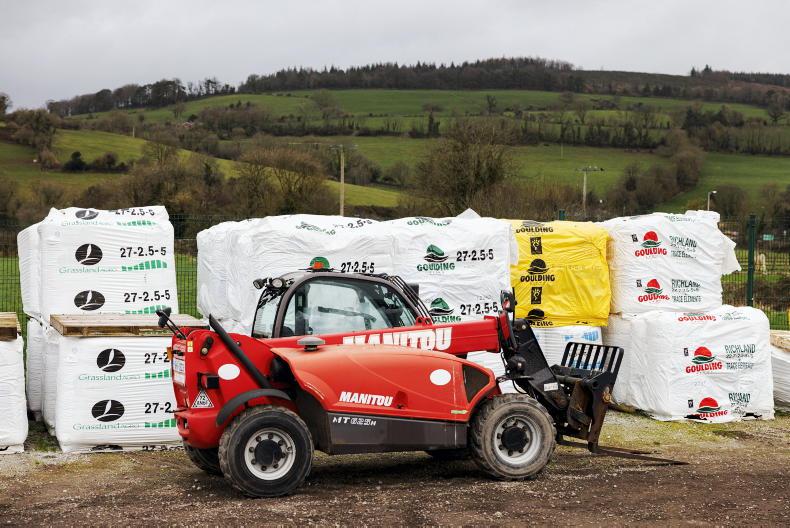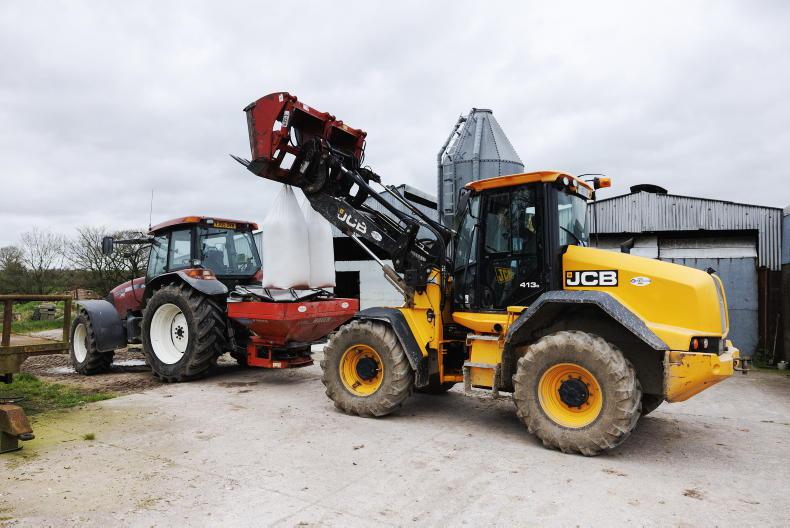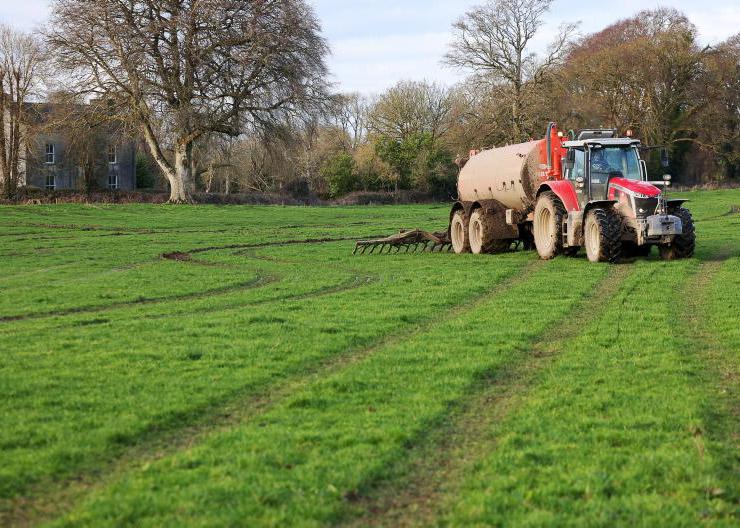Like many grassland farmers throughout Ireland, I was greatly disappointment with the decision to reduce the nitrates derogation.
Observing the debate over the last few weeks, I am convinced that the central issue is not actually about water quality in Ireland.
We are being told, at length, that there are only three countries in the EU with a derogation, and that this is one of the reasons why stocking rate is being reduced. But we know that farming systems are totally different and water quality is far superior in Ireland compared to the Netherlands or Denmark.
I have listened to a number of scientific experts as well as Department of Agriculture officials over the last number of months, and all have come to the same conclusion: that dropping the organic N from 250kg to 220kg N/ha on derogation farms will have little impact on water quality.
This was highlighted in the Teagasc nitrates report published last March, and is also backed up by results from the Timoleague catchment as part of the Agricultural Catchments Programme, which has shown that increasing organic N has not contributed to reducing water quality.
So, why then is the maximum organic N stocking rate being reduced from 250kg to 220kg/ha?
Politics or science?
Additionally, we are being told that the 3,000 or so derogation farms are being held responsible for water quality change, even though there are approximately 140,000 farms in the country.
This is despite the fact that derogation farmers are being held to a much higher environmental standard in terms of nutrient management and compliance. Is it politics or science that has decided on this derogation decision?
The fifth Nitrates Action Programme, only started last year, introduced a significant number of new measures, designed to reduce nutrient loss to water (all of which are sensible). This is on top of new measures added as part of the interim review of the fourth Nitrates Action Programme.
Time
Why weren’t these significant measures given time to work? On top of this, we have seen an almost 30% reduction in the use of chemical nitrogen over the last two years. These changes are the most significant I have seen in all my farming career.
The red map generated by the Environmental Protection Agency (EPA) has added further to the confusion. Reducing the organic N from 250kg to 220kg based on the change in nitrate concentration from 2021 to 2022 is unscientific and unreliable in identifying areas in the country that need improvements in water quality.
Observing the debate over the last few weeks, I am convinced that the central issue is not actually about water quality in Ireland
On top of this, further confusion has been added as to what the red map will look like in 2025. And even now, I still don’t know whether my farm is in the red zone or not.
The timeframe for action is totally unreasonable. On my farm, I will have to either rent extra land to comply with these changes – even though I don’t need this land to feed my herd, which is crazy – or alternatively, I will have to slaughter in-calf cows.
Analysis by IFA suggests dairy farmers in derogation will have to lease an additional 70,000 acres.
This will significantly threaten the livelihood of small- and medium-sized dairy farmers, as it will reduce overall farm profitability. What will happen to the land rental market? What will that do for nitrate loss on my farm?
In my view, the best the minister can do now is to defer these changes until the next review in 2025. I don’t accept that this cannot be changed at this later stage.
Areas that need
immediate clarity
There are four areas that the minister can provide immediate clarity to Irish farmers on:
Outline details on the proposed cow cull scheme. My own view is that this proposal needs to be scrapped, as the consequences could seriously affect our next generation’s farming options. Is it likely that slurry storage requirements are going to increase and chemical nitrogen allowances are going to decrease, and if so, by how much? Farmers need to know what is coming now and not a drip-feed of bad news, as has been happening.The Government must agree the terms of reference for the next Nitrates Action Programme with the European Commission now, and this must be based on sound science using the best available evidence. Even now, I still don’t know whether my farm is in the red zone or not
The Government/minister needs to provide a vision for agriculture and real leadership to deliver it now.
Kevin Twomey is a dairy farmer from
Ballyhooly in Co Cork.
Watch this video to hear Aidan Brennan explain the nitrates derogation.
Like many grassland farmers throughout Ireland, I was greatly disappointment with the decision to reduce the nitrates derogation.
Observing the debate over the last few weeks, I am convinced that the central issue is not actually about water quality in Ireland.
We are being told, at length, that there are only three countries in the EU with a derogation, and that this is one of the reasons why stocking rate is being reduced. But we know that farming systems are totally different and water quality is far superior in Ireland compared to the Netherlands or Denmark.
I have listened to a number of scientific experts as well as Department of Agriculture officials over the last number of months, and all have come to the same conclusion: that dropping the organic N from 250kg to 220kg N/ha on derogation farms will have little impact on water quality.
This was highlighted in the Teagasc nitrates report published last March, and is also backed up by results from the Timoleague catchment as part of the Agricultural Catchments Programme, which has shown that increasing organic N has not contributed to reducing water quality.
So, why then is the maximum organic N stocking rate being reduced from 250kg to 220kg/ha?
Politics or science?
Additionally, we are being told that the 3,000 or so derogation farms are being held responsible for water quality change, even though there are approximately 140,000 farms in the country.
This is despite the fact that derogation farmers are being held to a much higher environmental standard in terms of nutrient management and compliance. Is it politics or science that has decided on this derogation decision?
The fifth Nitrates Action Programme, only started last year, introduced a significant number of new measures, designed to reduce nutrient loss to water (all of which are sensible). This is on top of new measures added as part of the interim review of the fourth Nitrates Action Programme.
Time
Why weren’t these significant measures given time to work? On top of this, we have seen an almost 30% reduction in the use of chemical nitrogen over the last two years. These changes are the most significant I have seen in all my farming career.
The red map generated by the Environmental Protection Agency (EPA) has added further to the confusion. Reducing the organic N from 250kg to 220kg based on the change in nitrate concentration from 2021 to 2022 is unscientific and unreliable in identifying areas in the country that need improvements in water quality.
Observing the debate over the last few weeks, I am convinced that the central issue is not actually about water quality in Ireland
On top of this, further confusion has been added as to what the red map will look like in 2025. And even now, I still don’t know whether my farm is in the red zone or not.
The timeframe for action is totally unreasonable. On my farm, I will have to either rent extra land to comply with these changes – even though I don’t need this land to feed my herd, which is crazy – or alternatively, I will have to slaughter in-calf cows.
Analysis by IFA suggests dairy farmers in derogation will have to lease an additional 70,000 acres.
This will significantly threaten the livelihood of small- and medium-sized dairy farmers, as it will reduce overall farm profitability. What will happen to the land rental market? What will that do for nitrate loss on my farm?
In my view, the best the minister can do now is to defer these changes until the next review in 2025. I don’t accept that this cannot be changed at this later stage.
Areas that need
immediate clarity
There are four areas that the minister can provide immediate clarity to Irish farmers on:
Outline details on the proposed cow cull scheme. My own view is that this proposal needs to be scrapped, as the consequences could seriously affect our next generation’s farming options. Is it likely that slurry storage requirements are going to increase and chemical nitrogen allowances are going to decrease, and if so, by how much? Farmers need to know what is coming now and not a drip-feed of bad news, as has been happening.The Government must agree the terms of reference for the next Nitrates Action Programme with the European Commission now, and this must be based on sound science using the best available evidence. Even now, I still don’t know whether my farm is in the red zone or not
The Government/minister needs to provide a vision for agriculture and real leadership to deliver it now.
Kevin Twomey is a dairy farmer from
Ballyhooly in Co Cork.
Watch this video to hear Aidan Brennan explain the nitrates derogation.









SHARING OPTIONS